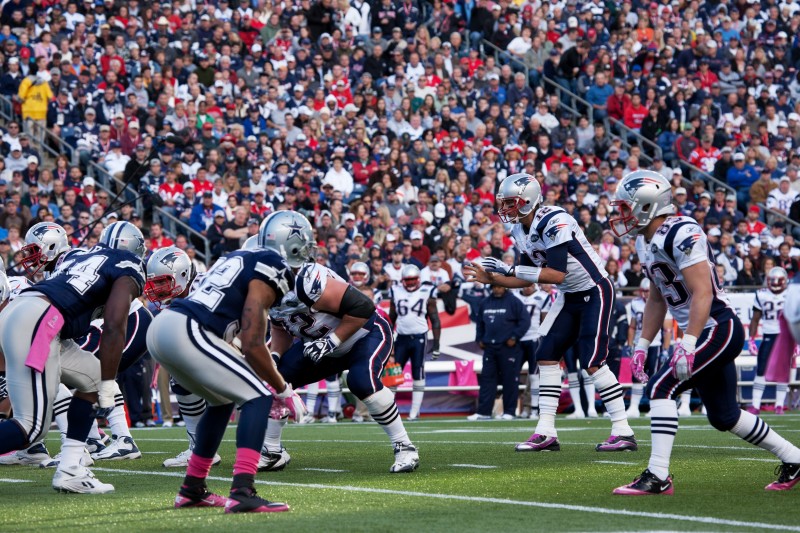
This is an article I have been wanting to write for a long time, but I just could not find a way to put all of my thoughts together. The biggest mystery in sports that has been plaguing me for years is why it is so hard to continually win. Why is it so hard to continue to excel, bit by bit, and stay there year after year, time after time? Why could you have a great year one year and a horrible one the next? I am writing this because we did just that. We had a great season last year, one of the best records in school history. This year—horrible. Flipped our record in 365 days. Why, why, why is all I have asked myself over the past few months. How can you go from that to this? It is extremely frustrating, and hopefully, I have found some answers that can help you.
I am older than most and have been at it a long time; I have seen a lot of changes over the years. I would love to say “the kids are different now than they were back then” and call it a day. Yes, they are different; they learn differently than we did in the past, and they have a lot more information, stressors, and expectations thrown at them on a daily basis. They have to pretend that their lives are perfect every day or risk the Instagram mafia tearing them apart. Players today are more selfish than ever due to the fact that everything is about them. iPhones, not we phones, iPads, not we pads, selfies you name it. Think about it; if it is all about you, then how hard must it be to be a successful and productive teammate?
This is where coaching comes in. Yes, the players are different, but is your coaching? Are you stepping up and finding new ways to reach these kids and teach them how to work hard and sacrifice for the common good, or are you writing them off, saying they don’t get it and aren’t good enough? Even worse, are you lying to them with fake juice, jumping or yelling all day but not really accomplishing anything? This may be the worst part, as Kobe Bryant said recently in an interview, “You can be fake and lie all you want, but sooner or later you’re going to have to face that guy who hasn’t been lying and he’s going to kick your ass.” So far, we have established that kids are different than they were, and maybe it is our coaching and our culture that need fixing. We are living in the golden age of football. The two greatest dynasties in the history of this sport are playing right now, and the records and what they have accomplished are astounding.
Image credit: Visions Of America LLC © 123rf.com
Alabama and the New England Patriots have dominated the sport like no other. Put away your biases and just look at them objectively. They are the standard, and the way they conduct and run their perspective organizations should be a study for all. They are both similar in their approaches, and their outcomes speak for themselves. They are not one-hit wonders, up one year and down the next. They are always in the hunt for a championship year in and year out. Sure, they lose every once in a while, but I am talking about dynasties here, years after years of excellence. They have top players now, not just from 20 years ago, just as we had last year. So, how do they maintain it, and how do we fix our lackluster situation this year?
After studying their teams, along with what we did right last year, a pattern started to emerge. Some traits in players started to show up, and the more we looked at it, we noticed that those traits are not present this year. In fact, after a careful review, the biggest difference came down to one simple question: are you compliant or committed? Are your players, coaches, trainers, anyone in your organization compliant, or are they committed? I firmly believe now more than ever that this is the biggest difference in winning and maintaining a winning team. You HAVE to have more committed people in your organization than the other guy does or you will not continually win. This sums up almost every sport cliché’ ever written: “Hard work beats talent when talent doesn’t work hard.” Hard work–commitment! Also, “The will to prepare to win is more important than the will to win.” Will–commitment! The differences in being compliant compared with being committed could fill a book. Compliant players, employees, coaches, etc., basically do the bare minimum. They are not innovators. They do things because that is how they have always been done. They do things only because they are told to, not because they want to. Compliant people exhibit fake behaviors at work or on the field because that is what the boss or coach tells them to do, and after a brief amount of time it doesn’t work anymore. If you are not a customer service person and you fake being nice to someone because your boss says that is how you have to act, it gets old, and people see right through you. If you go through the motions and really don’t like practicing and just do the bare minimum, it will show up on gameday.
MORE: Earn Student-Athlete Respect with These Principles
Commitment is probably the best way to describe the “process” that Coach Saban always talks about. Committed people never do the bare minimum. They focus on the task that is right in front of them, working day after day to improve, knowing that if they do this, the outcome will take care of itself. If the only film you watch is what the coach shows you at meetings, are you compliant or committed? How many hours of film does Tom Brady watch in a week outside of meetings? How many times do you get treatment a day: once because that is all that is required, or three times because you are committed to getting back on the field to help your team? How many extra workouts have you done to fix something that is wrong: none because that is what is required, or as many as it takes because you are committed to becoming better? My favorite is the player who needs to gain weight but since it is not required does nothing about it, just complains: “I can’t gain weight.” He or she is compliant. But the one who sets an alarm to eat once or twice a night, never passes food without eating something, and always has snacks or shakes available—he or she is committed. The list could go on and on, but it boils down to, am I going to do the bare minimum and just try to fake everything, or am I going to commit to greatness and pay whatever price I can to climb and stay on top of the mountain? Now that that is sorted out, what can we do to foster this environment of commitment?
It has to come from the top: the person in charge has to set the standard. Has to lay out how things are going to run, has to outwork everyone. Must hire people who are not happy to have jobs but rather people who want to excel at their jobs and be the best. Must never stop learning, never be complacent. Set the bar high, recruit players with the same type of passion, will, and commitment to excellence. Must hold everyone involved in any way with the organization or team accountable for what he or she is in charge of, and must always be able to take input from all involved, including players and coaches, to get everyone on the same page. As a strength coach, you can do all of these things with your staff: focus on how you conduct workouts and build relationships and bodies up at the same time. Make your group the best they can possibly be, and make other sections of the team try to emulate the product you give then on the field.
I know it is not easy, and I know we are in a bad situation. We don’t recruit these guys, we have very little say in who they bring in, and we are expected to make a mountain out of a molehill, chicken salad out of chickenshit. But we can and have done it, and we will do it again over and over. The best analogy I could give is simple: just take a piece of coal. That is the player you start with. Add a little pressure (bare minimum) and you could make it into a charcoal briquette. You could light it up and it will cook one meal for you, maybe keep you warm for a little bit. Cheap, dirty, and costs pennies to make, literally a dime a dozen. Take that same piece of coal and apply the right amount of pressure over time (commitment) and what do you get? A diamond. Expensive, beautiful, and the hardest substance known to man. Valuable, lasts forever. You decide.












Principles drive Processes drive Practices drive Perfirmances
Thanks for all you do for our industry skal ashley